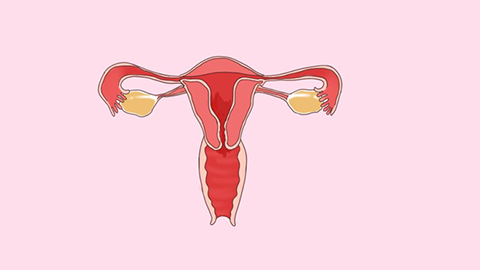What can be done about prolonged menstrual bleeding caused by a uterine diverticulum?
Generally, prolonged menstrual bleeding caused by uterine diverticulum may be due to residual menstrual blood in the diverticular volume, hormonal fluctuations, endometritis, coexisting diverticular polyps, poor scar healing of the uterine diverticulum, and other factors. It is recommended to seek timely medical attention to identify the exact cause and then improve the condition under a doctor's guidance through general treatment, medication, surgical treatment, and other approaches. Detailed explanations are as follows:

1. Residual menstrual blood due to diverticular volume: After the formation of a uterine diverticulum, menstrual blood tends to accumulate in the recessed area and is expelled slowly afterward, leading to prolonged bleeding. Increasing physical activity moderately during menstruation, such as walking, can help promote the discharge of menstrual blood; prolonged sitting should be avoided, and one should stand and move for 5 minutes every hour to reduce residual blood in the diverticulum.
2. Hormonal fluctuations: Imbalances between estrogen and progesterone can affect endometrial repair, prolong bleeding duration, and worsen prolonged menstrual symptoms. Maintaining a regular lifestyle, avoiding staying up late, and keeping emotionally stable are recommended. Diet-wise, consuming more soy products such as tofu and soy milk may help regulate hormone levels. Hormone monitoring should be performed when necessary, following medical advice.
3. Endometritis: Bacterial infection causing endometrial inflammation leads to slow endometrial healing due to inflammatory stimulation, accompanied by prolonged menstrual bleeding and lower abdominal pain. Patients should follow medical instructions to take anti-infective medications such as cefixime dispersible tablets, metronidazole tablets, and doxycycline hydrochloride tablets.
4. Uterine diverticulum with polyps: Excessive endometrial proliferation within the diverticulum forms polyps, which hinder the discharge of menstrual blood and prolong the bleeding period. Patients should follow medical advice to take endometrial-regulating medications such as dydrogesterone tablets, progesterone capsules, and ethinylestradiol cyproterone acetate tablets. If the polyps are large, hysteroscopic polypectomy can be performed to remove the polyps and restore normal uterine cavity structure.
5. Poor scar healing of the uterine diverticulum: Previous surgical scars heal poorly, resulting in a deeper and larger diverticulum volume with significant residual menstrual blood. Patients can undergo hysteroscopic diverticulum repair surgery to restore scar tissue, reduce the diverticular volume, and decrease menstrual blood residue.
During menstruation, maintaining good hygiene is important, including frequent sanitary pad changes and avoiding tub baths. Avoid consuming spicy and cold foods. Instead, eat iron-rich foods such as lean meat and spinach to prevent anemia caused by prolonged bleeding. Comprehensive care can promote physical recovery.




